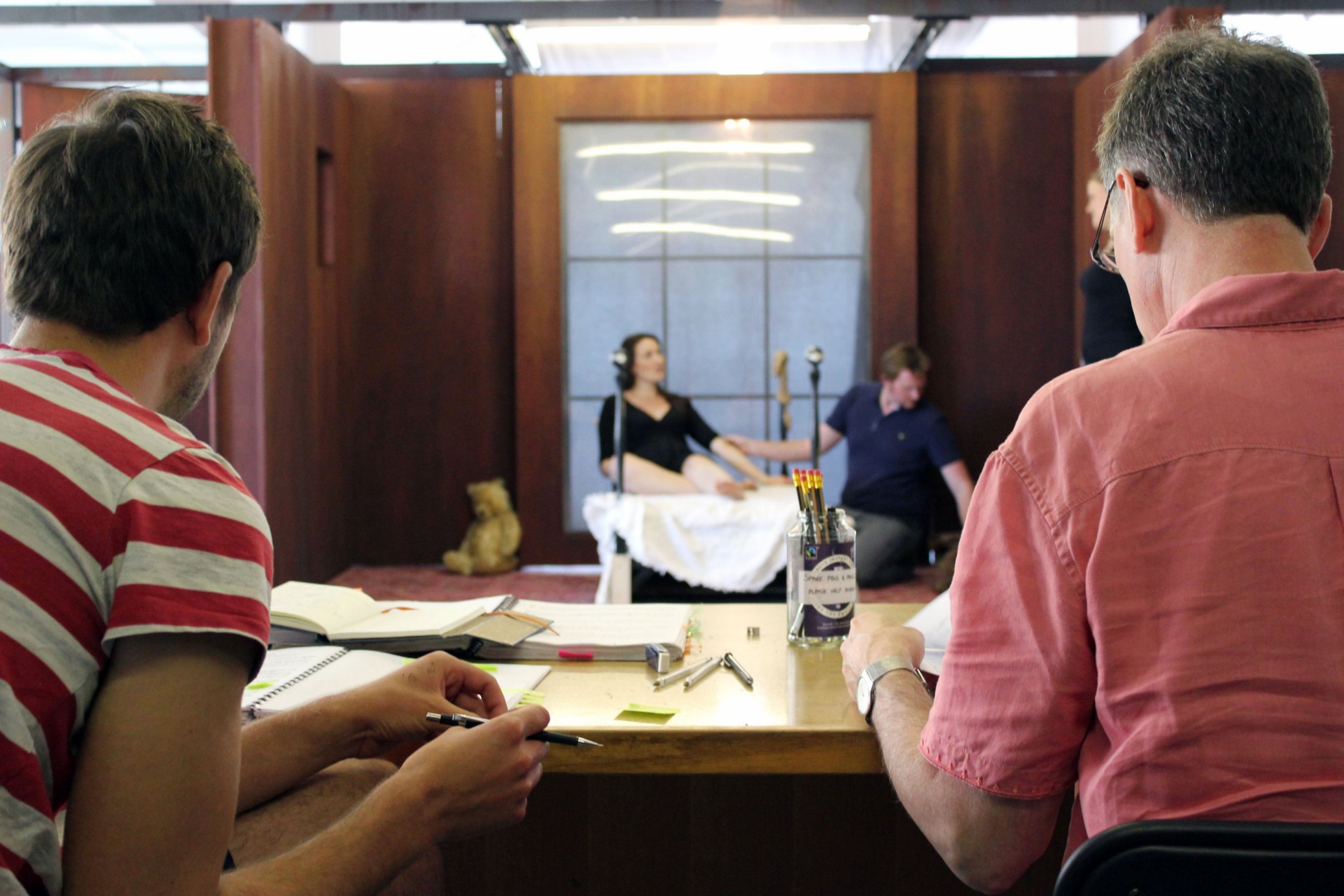
Rehearsals for the production of 'The Coronation of Poppea'
What video content do audiences want?
From trailers and vox pops to backstage sneak peeks, the arts sector produces reams of video footage, but what impact does this content have on audience behaviour? Andrea Perseu shares his recent research.
Last year, English Touring Opera (ETO) was awarded funding by Creativeworks London to find out what purpose our marketing content had and generate the kind of qualitative data that is so much harder to get than the stats available from Google Analytics or Facebook Insights.
The initial stimulus for the research was provided by a previous project that investigated audience attitudes to cinema broadcasts of opera. Its findings suggested that core audiences (regular opera attenders) like the supporting materials available in cinemas, such as introductions to the plot, backstage videos and interviews with the performers during the interval.
Rather than using supporting materials to make a purchase decision, audiences tend to consume them after booking their tickets
But what exactly do they value about that content? And do occasional attenders, or people completely new to opera, find this type of content similarly engaging?
Focus groups and interviews
We asked the research team to use viewers’ responses to the company’s own supporting materials as a tool to explore those questions. We conducted six focus groups and two one-to-one interviews with London-based audiences from four broad audience segments: regular opera-goers, young opera-goers, families who attend theatre performances through offers provided by Mousetrap Theatre Projects, and regular attenders of the Hackney Empire who do not currently attend opera.
The participants were shown a selection of short videos, including an interview, a preview trailer, a production trailer and a rehearsal/backstage video, and were then asked to discuss these items.
What we learnt
The first thing that struck us was the diversity of opinions among the participants, which made it difficult to predict an individual’s response based on their demographic grouping or audience segmentation. However, we were still able to get an indication of how people use supporting materials, and what functions the materials perform.
Based on our research data, digital content has two functions primarily: it develops the audience’s familiarity with the company’s work, and it aligns their expectations of a particular performance. Rather than using supporting materials to make a purchase decision, audiences tend to consume them after booking their tickets, to gain an insight into the story and creative process, reassure themselves of the quality of the company and production, and increase their level of anticipation ahead of the performance.
This suggests that digital content is not so much a sales tool as an extension of the performance itself. By producing engaging supporting materials, a company can magnify the positive impact of a performance in the audience’s mind. Interestingly, though, if a good trailer is no guarantee of additional sales, the reverse isn’t necessarily true: many participants said they would be put off booking for a show by the cheap quality of the production trailer.
So on a more practical note, we learnt that the technical standard of digital materials is very important, as their production values are an indicator of the production values of the company as a whole. If the sound quality of a clip is poor, viewers make negative associations with the quality of a performance; if the editing is not slick and professional, the same expectation transfers to the performances. About one of our videos, a focus group participant said: “The audio was of bad quality. If I hear this, I would probably not go to the opera, because my impression was that it was a very bad performance.”
We also learnt to beware of superlatives. Everyone is careful about using too many adjectives when writing copy, but do we pay the same attention when making videos? Another focus group participant said, after watching a video interview: “We heard ‘compelling’ a lot. And I thought: ‘I don’t need to be told about something being compelling. I judge that.”
Another respondent added: “I don’t want somebody else to interpret something on my behalf.” The lessons here are: be informative, don’t offer your own interpretation of quality, and let the work speak for itself.
We also heard that viewers primarily want music, and lots of it. This creates a whole new host of problems, especially if you’re working on a new production and orchestral rehearsals happen later in the process. But the real issue here is managing people’s expectations about the kind of content that they feel should be available (based on their experience of what’s available elsewhere online), versus what you can make available depending on your resources, production schedule and copyright agreements.
Subsequent changes
We have changed the way we commission our supporting materials both from a technical point of view (we are much more wary of lo-fi content, and produce less of it) and a contextual one, meaning that we now develop more content aimed at people who have already booked tickets, and place less emphasis on sales. We are also redesigning our website to experiment with the way our audiences experience the digital content we produce.
Andrea Perseu is Head of Marketing at English Touring Opera.
www.englishtouringopera.org.uk
If you would like to find out more, read the Creativeworks London research paper.
Join the Discussion
You must be logged in to post a comment.